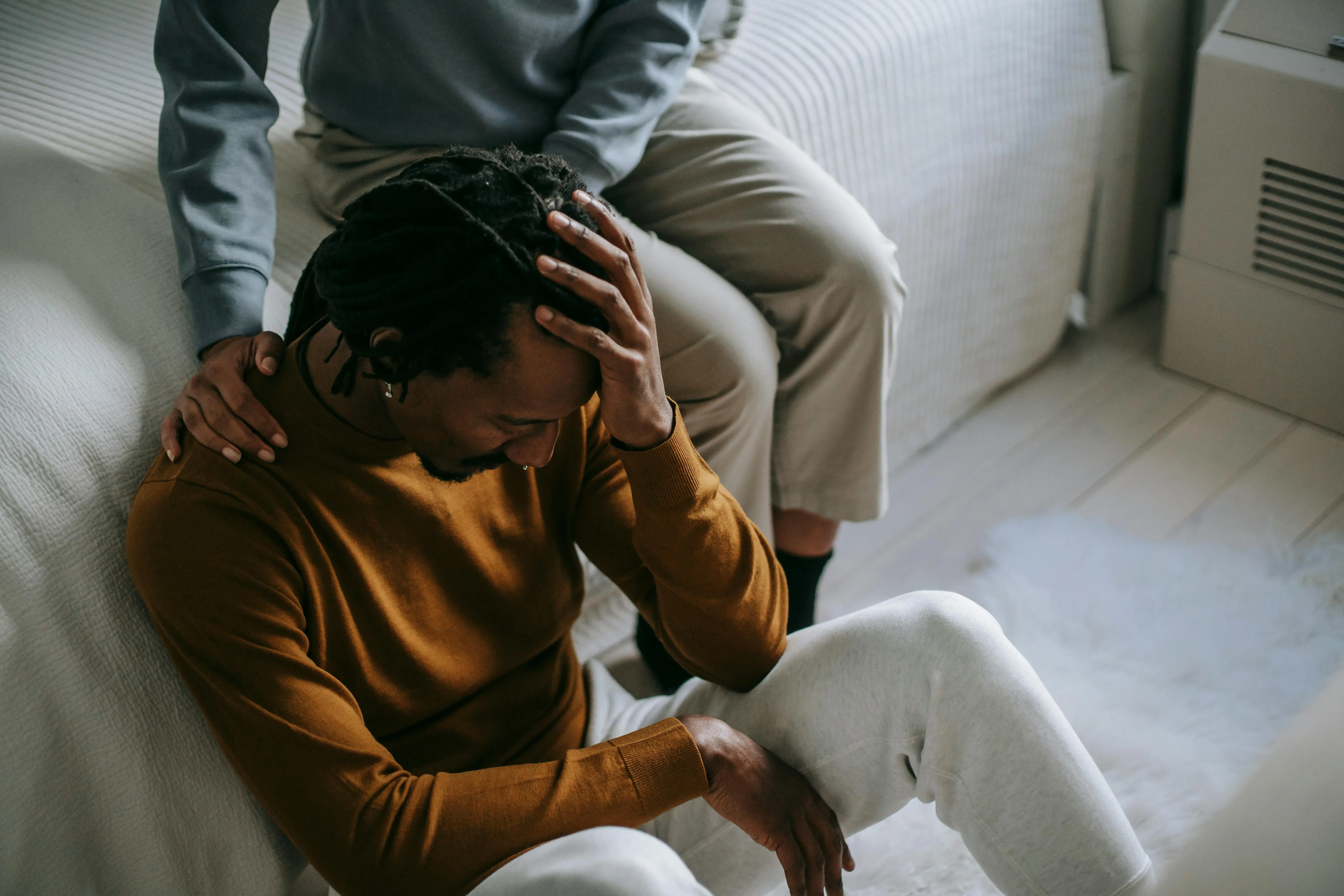Which medications treat anxiety?
July 16, 2025

Disclaimer: Human Health is not recommending any specific medical treatment for any particular symptom, nor providing any other medical advice. Always seek the advice of your doctor regarding any medical concern.
Anxiety can significantly affect how a person feels, behaves, and functions. Some of the common symptoms of anxiety include feeling excessively worried, irritable, and experiencing sleep disturbance. In order to manage the effects of anxiety, a doctor may recommend certain types of medication. In this post, we’ll explore which medications are commonly used to treat anxiety and why.
Initial medications
Some medications are specifically recommended as first-line options for the treatment of anxiety. This means that doctors will prescribe these medications to their patients with anxiety first, over other types of medication for anxiety. This may be because they have a more favorable side-effect profile than some other treatments.
The major class of medications recommended as an initial treatment for anxiety are a type of antidepressant called serotonin reuptake inhibitors (SRIs). There are two main types of SRIs used for anxiety, including selective serotonin reuptake inhibitors (SSRIs), and serotonin-norepinephrine reuptake inhibitors (SNRIs).
Some other medications have been studied as initial treatments for anxiety, but for reasons including risk of dependence, side effects, and limited evidence for their effectiveness as stand-alone treatments for anxiety, they are not recommended as first-line treatments.
Selective serotonin reuptake inhibitors
SSRIs work by blocking the action of proteins in the brain called serotonin transporters. When serotonin transporters are deactivated, the amount of available serotonin in the brain increases.
Serotonin is a hormone that is involved in regulating processes such as mood, behavior, appetite, perception, fear, and stress. Because these processes are involved in creating some of the symptoms of anxiety, changing the level of serotonin in the brain can therefore have an effect on anxiety symptoms.
Commonly prescribed SSRIs for anxiety include:
- Paroxetine
- Sertraline
- Escitalopram
- Citalopram
- Fluoxetine
- Fluvoxatine
Serotonin-norepinephrine reuptake inhibitors
SNRIs are very similar to SSRIs, except they also increase the amount of another hormone called norepinpehrine in the brain, which is involved in regulating stress, alertness and attention.
Commonly prescribed SNRIs for anxiety include:
- Venlafaxine
- Duloxetine
Side effects of SRIs
Some commonly experienced side effects for SRIs include:
- Insomnia
- Sexual dysfunction
- Nausea
- Diarrhea
- Insomnia
- Sedation (feeling sleepy or calm)
- Weight gain
- Dizziness
- Sweating
In order to counteract some of these side effects, doctors may prescribe additional medications to ensure optimal management of anxiety symptoms.
Tracking how a treatment works for you
After starting a new treatment, it can be tricky to keep track of how your symptoms are changing, or any side effects you may be experiencing. It can be even harder to try and recall this information in the limited time during a doctor’s appointment.
Human Health is a free app that helps you track your symptoms and any treatments you might be taking. You’ll even get push notifications to remind you to take your treatments. Using a medication tracker can help provide you and your doctor a clearer picture about which treatments are working for you, so you can make more informed decisions about your health.
Click here to download Human Health.
Other medications
If anxiety symptoms are not adequately managed by an SRI alone or SRI with further treatment for side effects, other medications may be recommended. These medications may not have as much clinical evidence for their effectiveness against anxiety symptoms, but doctors may still prescribe them if they believe it is the right treatment for a patient.
Buspirone: This medication mimics the activity of serotonin in the brain, which produces a similar effect to increasing serotonin levels in the brain.
Gabapentin: The mechanism by which this medication affects anxiety symptoms is unclear, but it is thought that gabapentin may decrease excitatory activity in the brain, which could decrease anxiety symptoms such as restlessness and repetitive thoughts.
Mood-stabilizing agents: For patients with a history of mood disturbances, such as experiencing episodes of hypomania or irritability, medications such as valproate or lamotrigine may be recommended. Similar to gabapentin, these medications are thought to work by decreasing excitatory activity in the brain.
Mirtazapine: This medication is specifically recommended for patients who have considerable insomnia. It is a sedating medication, which means it makes people feel tired or calm. This may help alleviate feelings of anxiety.
Imipramine: This medication is a type of antidepressant called a tricyclic antidepressant (TCA). It also works similarly to SRIs by blocking the reuptake of serotonin and norepinephrine. TCAs may be less tolerable due to their side effects.
Vilazodone and Vortioxetine: These medications work by both blocking the reuptake of serotonin and mimicking the effects of serotonin.
Antipsychotics: These medications are usually used to treat conditions that have an element of psychosis, which is when thoughts and emotions are disconnected from reality. Examples such as quetiapine or aripiprazole may be used in some cases to treat people with anxiety who do not respond well to other types of medication.
Benzodiazepines: These medications work by increasing the activity of a hormone called GABA, which has a calming effect on the brain and nervous system. Examples of benzodiazepenes used to treat anxiety include diazepam and clonazepam. However, because there is a high risk of dependence, they are only used when other options do not work.
Hydroxyzine: This medication has sedative effects, which can make people feel calmer or drowsy. It is thought that hydroxyzine reduces the symptoms of anxiety because it helps mediate the body’s stress response, so that we become more relaxed.
Non-pharmacological treatments
Medicinal treatments are not the only option available for management of anxiety. A particular type of psychotherapy called cognitive behavioral therapy (CBT) has been found to be effective in the treatment of anxiety. Clinical guidelines also recommend regular exercise, mindfulness meditation, and yoga as supplementary therapies to pharmacotherapy.
We hope you found this article useful. If you know someone who might benefit from reading this article, please share it with them. We’d love for our resources to reach those who need them.
Resources
- Craske M, Bystritsky A. Generalized anxiety disorder in adults: Management. Up To Date [Internet]. March 2024.
- Diagnostic and Statistical Manual of Mental Disorders (5th edition).
- Markota M, Morgan RJ. Treatment of Generalized Anxiety Disorder with Gabapentin. Case Rep Psychiatry. 2017;2017:6045017. doi: 10.1155/2017/6045017.
This is a div block with a Webflow interaction that will be triggered when the heading is in the view.










.jpg)





.png)

